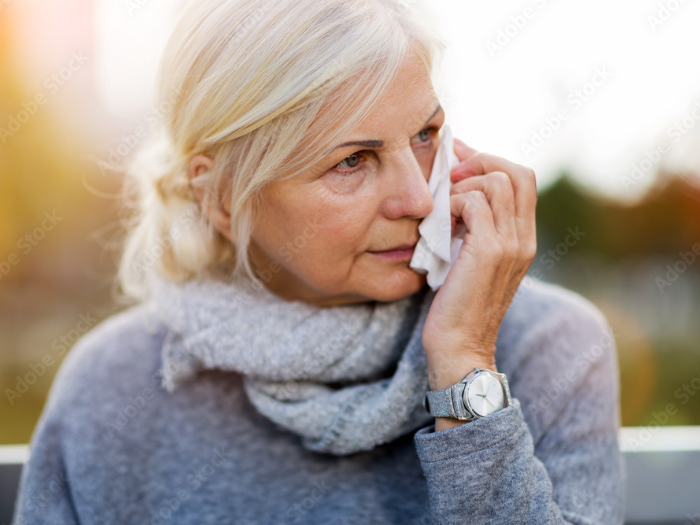
Common responses to sudden bereavement
The grief response following the death of a loved one on the roads is often intensified as there has been no preparation or chance to say goodbye.
Families are suddenly forced to face the loss of a loved one instantaneously and without warning. This type of loss can generate intense grief responses such as shock, anger, guilt, sudden depression, despair, and hopelessness.
At times the things you feel may be over-powering and exhausting. In addition to shock, common feelings you may experience include:
- anger
- anxiousness
- stress
- worry
- depression
- feeling scared
Some days may feel much worse than others – people often feel like they are on a rollercoaster of emotions.
You may experience flashbacks/nightmares
Vivid thoughts and dreams about the incident, the person who has died, or a fear, are a frequent response to bereavement and usually become less intense as time goes by.
Flashbacks can be extremely realistic and make you feel like you are experiencing everything again. Not everyone suffers flashbacks, but if you do, they may happen at any time and be frightening.
Things that you can do if you are experiencing flashbacks are:
It is not your fault that you are feeling this way, and it is normal in the circumstances. These feelings are not part of your character, and if you take care of yourself and seek support, they can subside over time and be replaced by more positive feelings.
- Tell yourself you are having a flashback and the experience you are seeing is from the past
- Remind yourself that the worst is over and the feelings you are experiencing are memories of the past
- The flashback will most probably cause you to feel frightened which changes normal breathing. Your body may then start to panic due to lack of oxygen. Breathing deeply can help the feeling of panic to subside
- Re-establish to the present
- Find your boundaries
Use your senses
- Treating yourself to simple home comforts can help to make you feel a bit better or calmer, this could be as simple as a cup of tea or listening to calm music
- Try looking around to see what colours are in the room, the shapes of things, who is near, and so on
- Try listening to the sounds in the room; your breathing, traffic, birds, people, cars etc
- Feel your body and what is touching it; your clothes, your own arms and hands, the chair or floor supporting you
Using the tips above can help you ground yourself when things may seem overwhelming.
Do anything that you can to make yourself feel safe such as wrapping yourself in a blanket, hold a pillow or soft toy or go to bed; and get help. You may feel the need to be alone or you may want someone near you. In either case it is important that your friends and relations know about flashbacks so they can help with the process, whether that means letting you be by yourself or being there, whatever is right for you is right. Our specialist counsellors can also help.
Understand these feelings are normal
It is not your fault that you are feeling this way, and it is normal in the circumstances. These feelings are not part of your character, and if you take care of yourself and seek support, they can subside over time and be replaced by more positive feelings. Treat yourself to simple comforts that are likely to make you feel a tiny bit better or calmer. This could be as simple as a cup of tea or listening to calm music.
How you can help yourself
Nothing can soften the pain of suddenly losing a loved one. However, there are things you can do to help you cope following bereavement and to help you feel in control of your life again.
Each individual responds differently to trauma on the roads and you therefore need to do whatever feels right for you. Take a look below to read about some of the activities that can help you to cope and recover.
Creative therapy
Doing something creative to express yourself or to help remember someone can help you to move forward as you grieve.
For example, making a memory box containing items that belonged to the person who has passed away, mounting photographs, painting a picture, writing down your memories, creating a song or a poem, or planting flowers or a tree can all aid the healing process.
As time moves on, you may wish to do something in their honour – like taking part in an event they were planning to do.
There’s no right or wrong thing to do to help you remember and celebrate the person’s life – it’s individual to you and you can do whatever feels right to you.
Preserving your loved one’s things
Clothing that belonged to the person who has died may still smell like them, which you may want to keep to help you preserve a part of them. Keeping items in an airtight ziplock bag can help to do this, and you can go back to these items at times that you’re really missing them.
Likewise, you may want to keep things that remind you of your loved one – no matter how big or small, or strange they may be.
Taking time out to do such things is not frivolous. It can be very helpful to your recovery and give you reassurance that someone’s memory is being kept alive.
Keeping some of their favourite things is a good way to help you move on while remembering the person who has passed away.
Enjoying activities and making plans
Many people find long-standing hobbies, such as cooking, gardening, playing music, or looking after pets become therapeutic for them. On top of this, some people find work is a stable and reassuring aspect of their life that gives them a sense of control and continuity.
Make time for whatever helps you. It may be spending time doing something that occupies you physically but allow your mind to wander.
Whatever it is, you don’t need to think of these things as a waste of time. This is an important part of grieving for someone, and you should make time for any activities that help.
Exercise
You may not feel like exercising at all following a harrowing experience. However, gentle physical exercise, accompanied by someone who cares for you, can begin to help you recover from the intense emotions that losing a loved one brings.
The sport or exercise you chose will be very individual to you – you may want to go for a run in the fresh air or do some yoga alone. Likewise, you may want to play football or badminton with friends to feel the social support of those around you.
Physical exercise has been strongly shown to help people recover from emotional pain and will help you maintain your physical health in this difficult time.
Keep talking
It can help to explain to other people how you are feeling so they are not surprised if you display these feelings around them. At work, it can help to talk to your employer and colleagues. If you are at school, it can help to explain things to your teacher and friends. Some people find that being creative helps them to be calm. For example, writing, drawing or mounting photographs can be positive, peaceful activities.
Take your time
There are no quick fixes to everything you are feeling – it is part of a natural process caused as a result of the road traffic collision. It is important therefore not to try to rush the process and put yourself under pressure. Go easy on yourself and remember to look out for signs of how well you’re doing.
Likewise, it is important not to rush tasks that you think should be easy or straight forward. In times of severe stress, your body and brain are dealing with a lot of different things, and it is normal for usually straight-forward tasks to feel more challenging.
Voice is here to help you with whatever you’re feeling
Our specially trained team will help you to understand your emotions and to explore your feelings to help you to cope and recover from any incident.
